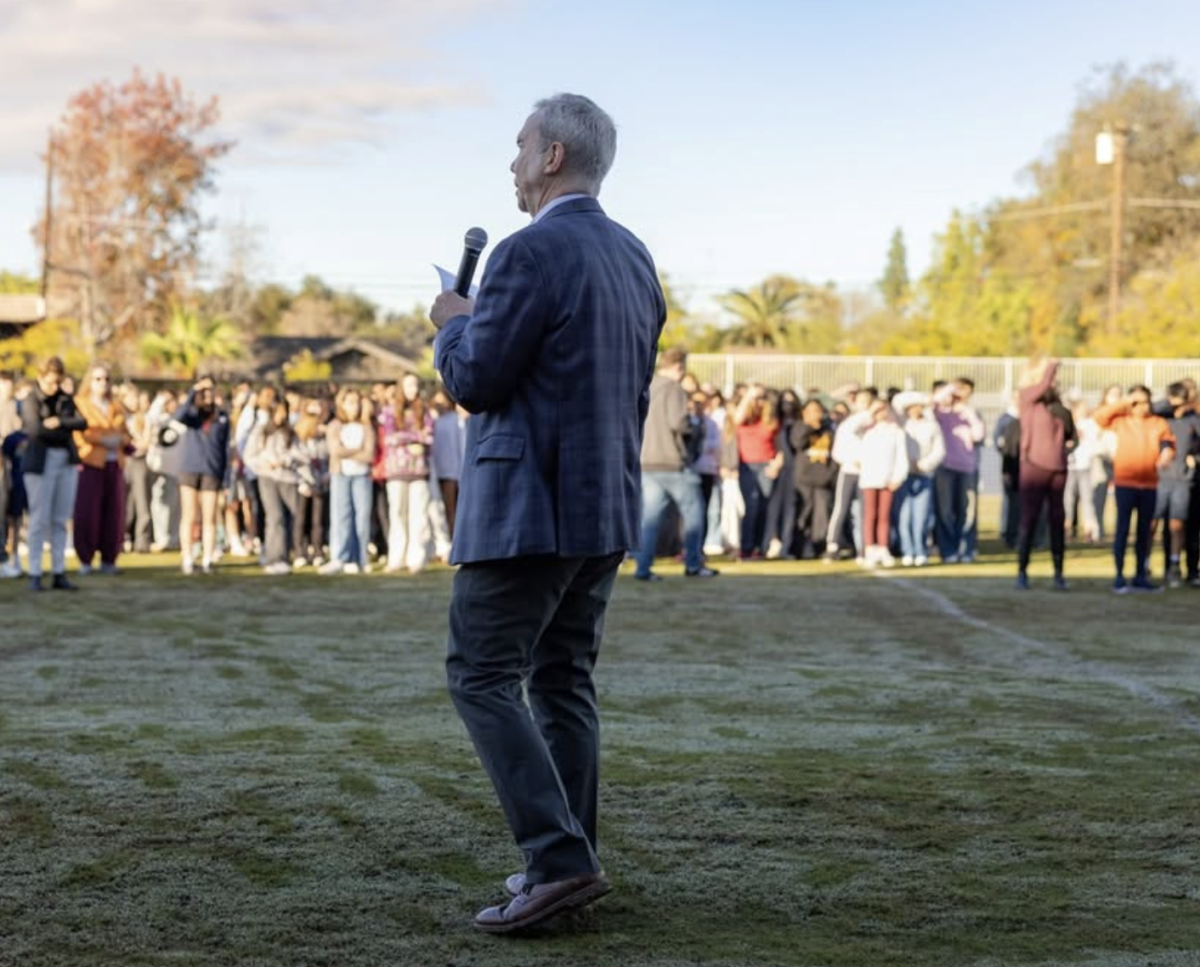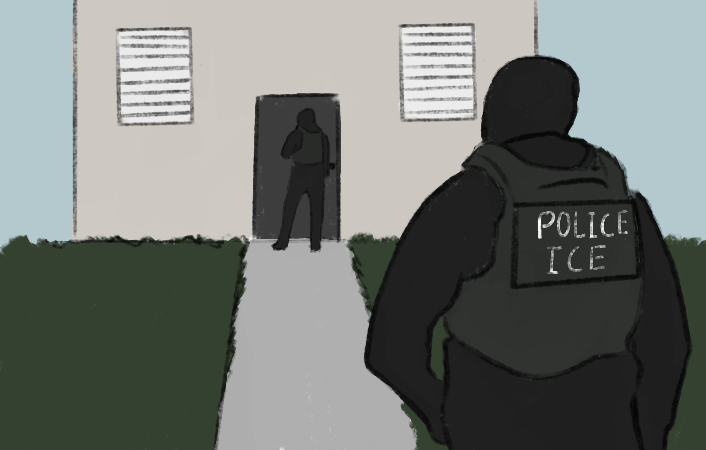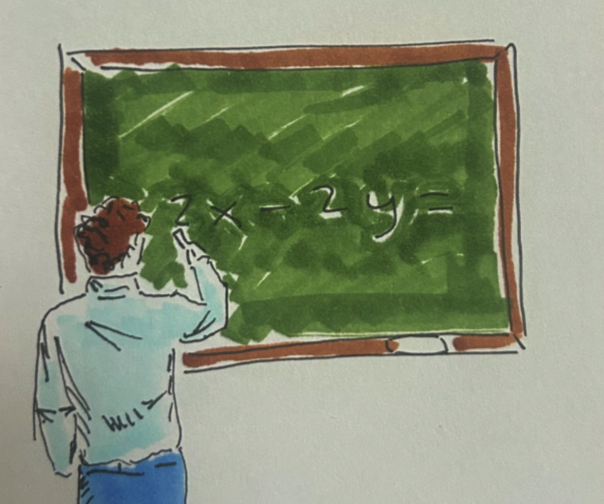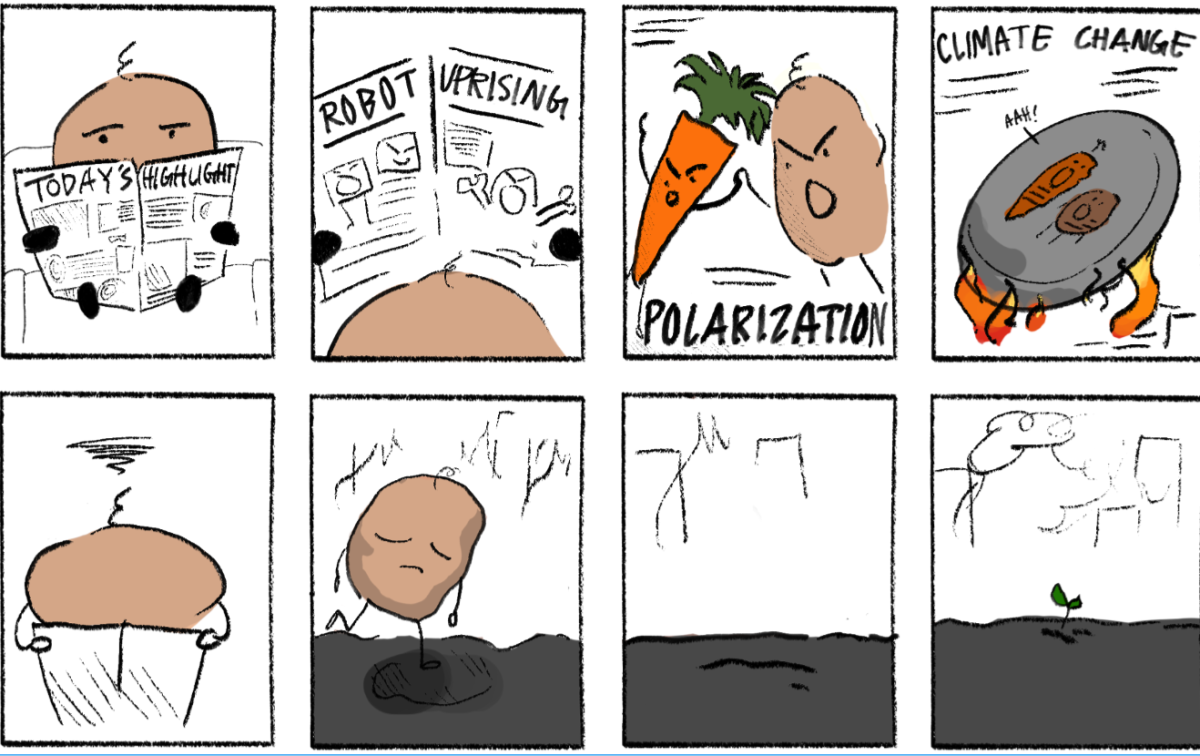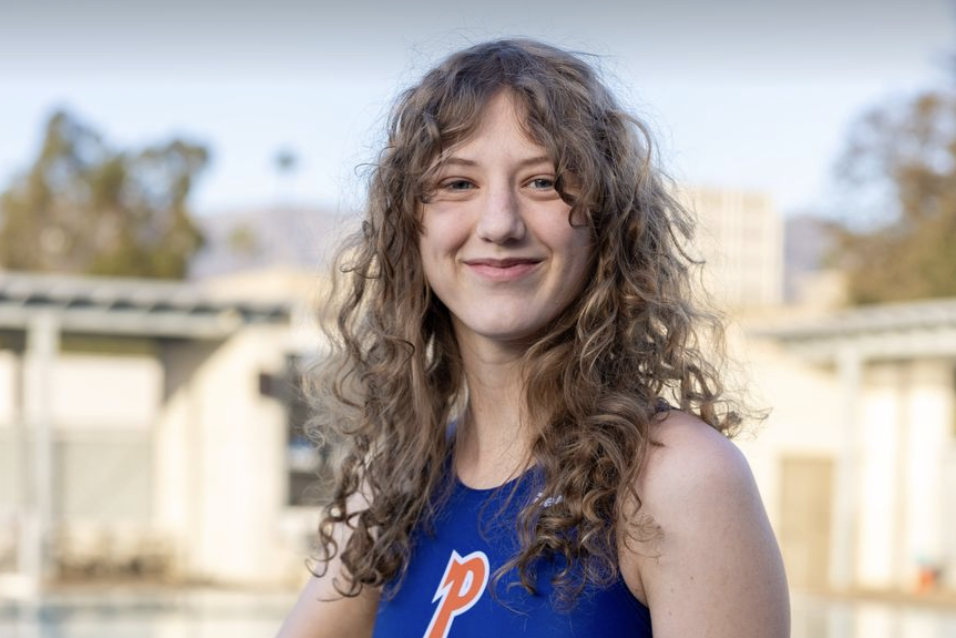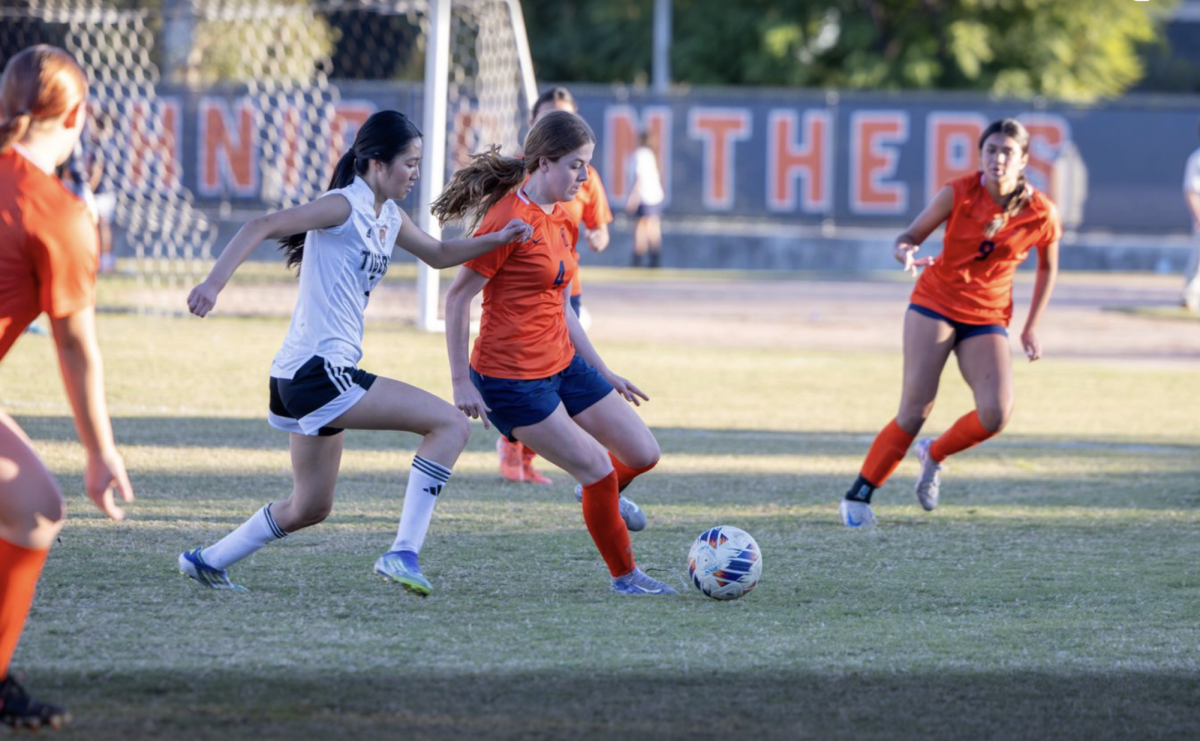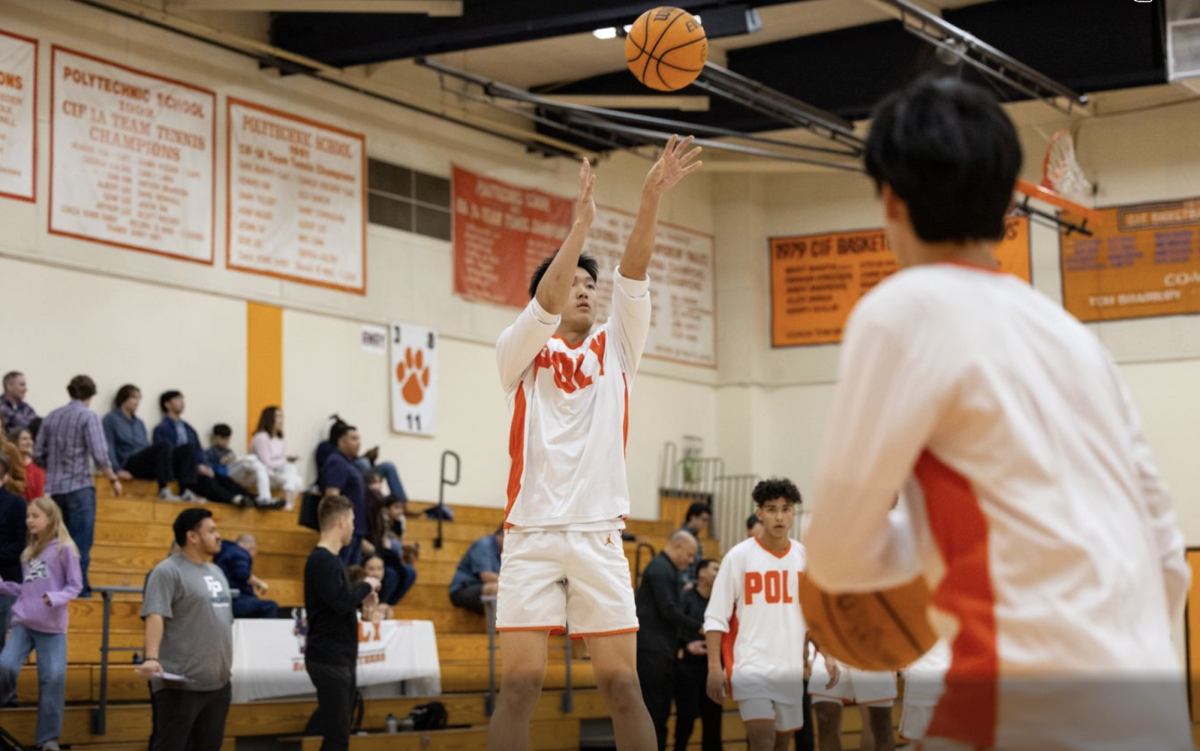Applying their studies to create a more sustainable school, students in Poly’s Climate Change elective are working to implement climate-related initiatives around campus. The new course, developed and taught by Upper School History Teacher Avi McClelland-Cohen, is interdisciplinary, with a focus on climate change through social science, geopolitical, historical, economic and literary lenses.
“Dr. MC wanted us to gain a better understanding of climate change without feeling a sense of hopelessness,” shared Mimi Ruedaflores, a senior in the class. “I think she was successful in doing this because of how much we learned about concrete ways we can take action as well as ways in which other people are taking action.”
In its inaugural year, the class was already popular enough to have two periods. The E period class’s initiative focuses on rewilding the Poly campuses by planting more indigenous plants as the existing plants die out.
Ruedaflores noted, “Currently, we don’t have many native plants on campus. We have a lot of invasive plants because the school prioritizes drought-resistant plants rather than native plants.”
The class hopes to cultivate these indigenous plants in places such as Arden Lawn, Erdman Courtyard and outside the Poly building near McWilliams Courtyard. They plan to use hügelkultur, a German gardening technique that involves creating a mound of organic material underneath native plants, to enrich the soil.
The C period class’s project has worked on building upon Poly’s existing plan of adding solar panels to the gym’s roof, ultimately aiming to create a completely solar-powered campus.
“Poly is a model school for other schools in the area,” expressed McClelland-Cohen. “If we were to make this transition, it would be a major signal to other schools and organizations in Pasadena.”
Both classes drafted proposals for their initiatives and presented them to Head of School John Bracker. Bracker has agreed to take the initiatives under advisement and consider making them a priority for Poly’s investments.
“There’s a lot that goes into making these decisions at the administrative level,” said McClelland-Cohen. “We have yet to see what ends up happening, but I’m always optimistic.”
It will be up to the Climate Change classes of future years to both continue these initiatives and start their own.
“As with all student-driven work, there is some responsibility on the younger students to take up the mantle,” remarked McClelland-Cohen.

